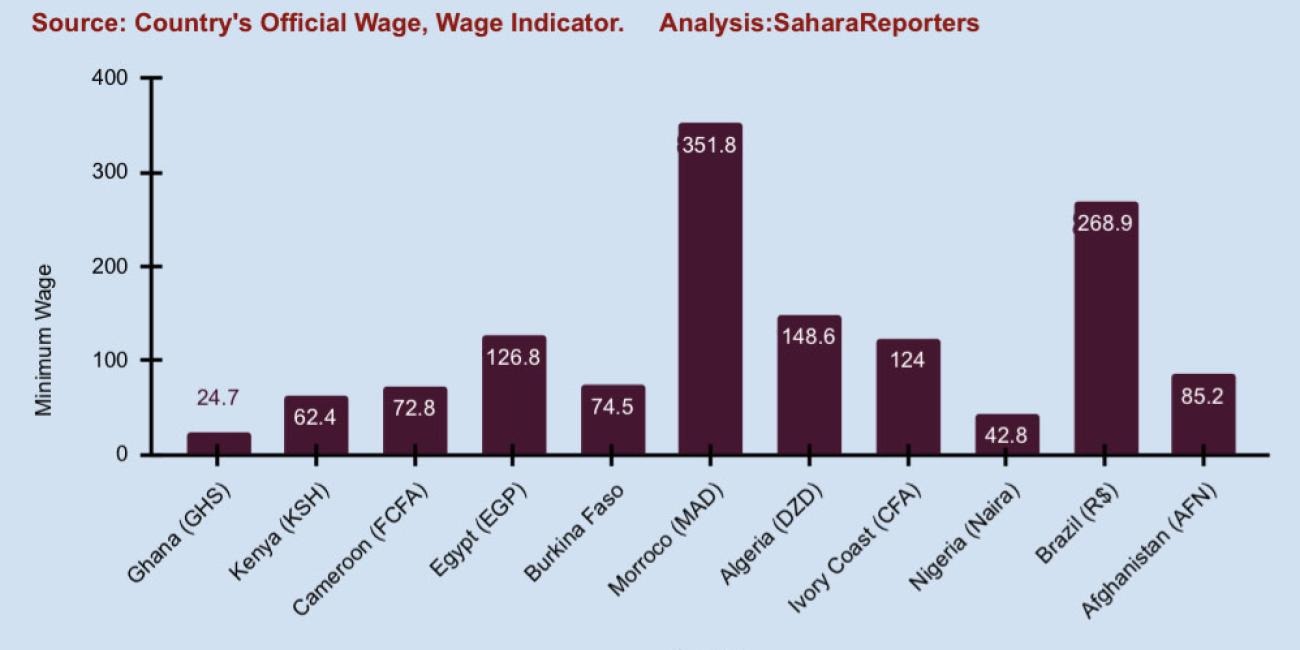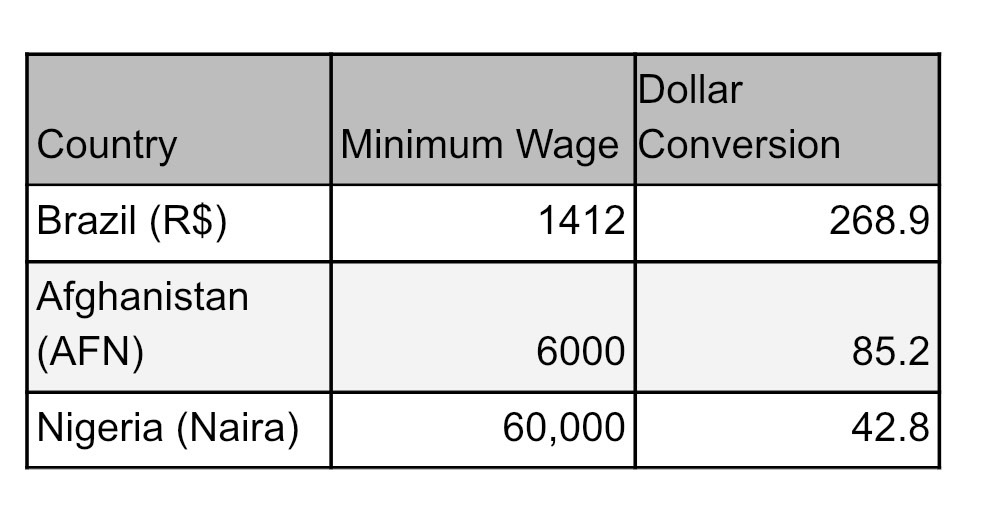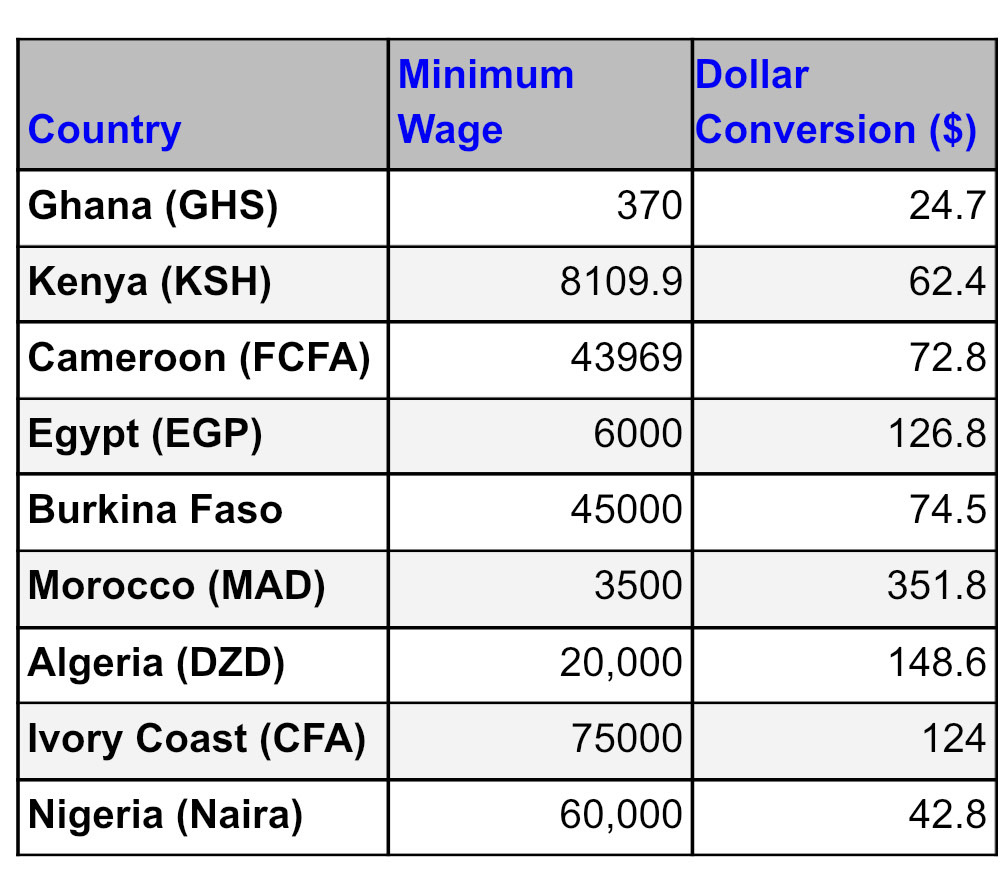Nigeria’s N70,000 New Minimum Wage Less Than Wages In Kenya, Cameroon, Cote d’Ivoire, Even Afghanistan
 The agreement resolves the longstanding impasse between the two parties and paves the way for implementation
The agreement resolves the longstanding impasse between the two parties and paves the way for implementation
After a period of prolonged disputes and disagreements, the Nigerian government and the organised labour reached an agreement on a new minimum wage of N70,000 on Thursday.
The agreement resolves the longstanding impasse between the two parties and paves the way for implementation.

As a nation heavily reliant on imports – including fuel, manufacturing inputs, and food items – Nigeria’s economy is significantly influenced by global currency fluctuations.
In 2023, the country’s import bill reached a staggering N35.9 trillion, according to data from the National Bureau of Statistics.
The widespread use of the US dollar in international transactions has led some to describe Nigeria’s economy as “dollarised”. This is particularly evident in the petroleum sector, where refined products are imported and paid for primarily in dollars.
In fact, the former Central Bank of Nigeria governor, Godwin Emefiele, revealed in 2021 that a whopping 40% of Nigeria’s foreign exchange (FX) was allocated towards fuel imports.

This report investigates the impact of currency fluctuations on the purchasing power of Nigerians, particularly in relation to the N70,000 minimum wage. We compare this amount to the minimum wage rates of nine other African countries, including Ghana, Kenya, Cameroon, Egypt, Burkina Faso, Morocco, Algeria, and Ivory Coast, in dollar terms.
Our analysis reveals that, except for Ghana, where the minimum wage is $24.7, Nigeria’s proposed minimum wage is the lowest among all the countries examined.
Using current exchange rates from the Central Bank of Nigeria (CBN), which pegs one dollar at N1584, the N70,000 minimum wage is equivalent to approximately $44.2.
This report provides a comprehensive analysis of the wage data from these nine African countries, highlighting the implications of currency fluctuations on the purchasing power of Nigerians.
Further analysis reveals that Nigeria’s new minimum wage is even lower than that of Afghanistan, a country facing political instability.
Afghanistan’s minimum wage is $85.2, significantly higher than Nigeria’s $44.2. Moreover, Brazil’s minimum wage of $268.9 is a staggering six times that of Nigeria’s.













